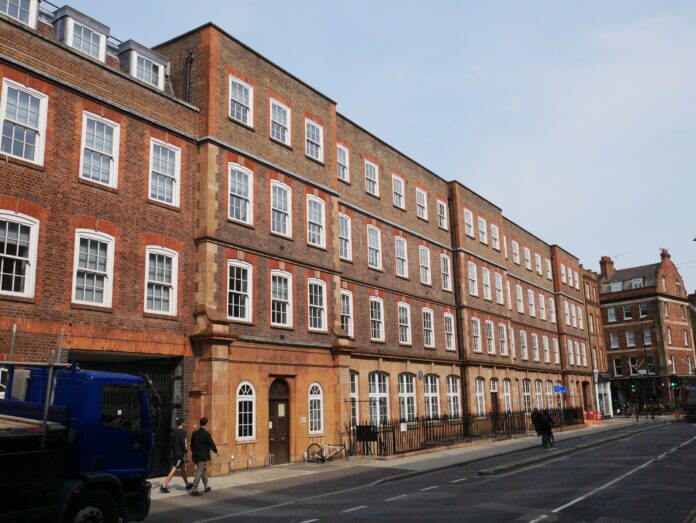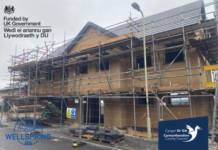
In recent years, the UK government has made significant changes to permitted development rights, making it easier for property owners to convert commercial buildings into residential properties. This change has created a unique opportunity for landlords looking to invest in property, providing a chance to take advantage of the increased demand for affordable housing.
The Changes to Permitted Development Rights
Previously, planning permission was required for the conversion of commercial property into residential property, which was often time-consuming and costly. However, the changes to permitted development rights mean that landlords can now convert certain types of commercial properties into residential properties without the need for planning permission, streamlining the process and making it more accessible for investors.
Benefits of Converting Commercial Property to Residential
One of the main advantages of buying commercial property and converting it into residential property is the potential for a significant return on investment. With the high demand for affordable housing in the UK, there is a growing need for residential property, particularly in urban areas. Converting a commercial property into residential property can be a cost-effective way to meet this demand while also increasing the value of the property.
Are you looking towards your future? Consider a retirement investment.
Investing in residential properties is considered one of the most effective retirement strategies, as these assets generally exhibit strong potential for appreciation in value over time. Furthermore, they are a reliable source of passive income, with investors earning recurring monthly payments through rental income.
Furthermore, the conversion of commercial property into residential property can offer landlords more flexibility in terms of the types of tenants they attract. With a wider range of potential tenants, landlords can ensure a more stable rental income, reducing the risk of empty properties and increasing the likelihood of a consistent return on investment.
According to Paul Elliott, the Managing Director of Propp, a specialist finance comparison site, clients are increasingly purchasing vacant commercial properties located on busy high streets with the intention of converting the upper floors into multiple flats. This approach presents an excellent opportunity to effectively manage cash flow and quickly expand one’s portfolio. It enables investors to sell one of the flats to generate equity for their next project, while keeping the remaining flats for rental income.
Tax Benefits of Residential Property Investment
The changes to permitted development rights also mean that landlords can take advantage of the tax benefits associated with residential property. This includes tax relief on mortgage interest payments, which can help to reduce the overall cost of investment and increase the potential return on investment.
Social Benefits of Converting Commercial to Residential
Another benefit of buying commercial property and converting it into residential property is the opportunity to add value to the property. By making strategic changes to the layout and design of the property, landlords can create a more appealing living space, which can significantly increase the value of the property. This increased value can also provide additional equity, which can be used to fund future property purchases or improvements.
In addition to the financial benefits, converting commercial property into residential property can also provide social benefits. With the UK facing a housing crisis, converting commercial properties into residential properties can help to alleviate the shortage of affordable housing. This can have a positive impact on local communities, providing much-needed housing for families and individuals who may be struggling to find suitable accommodation.
Limitations and Impact on the Local Community
It is worth noting, however, that there are some limitations to the changes in permitted development rights. While some types of commercial properties can be converted into residential properties without planning permission, there are still some restrictions. For example, properties in certain areas, such as conservation areas, may still require planning permission for conversion.
There are also some concerns that the conversion of commercial properties into residential properties may result in a loss of employment space, particularly in urban areas. This is a valid concern, and it is important for landlords to consider the impact that their property investments may have on the local community.
Nevertheless, the changes to permitted development rights have created a unique opportunity for landlords to invest in property and benefit from the growing demand for affordable housing. By taking advantage of this opportunity, landlords can benefit from the financial rewards of property investment while also making a positive contribution to their local community. Converting commercial property to residential property offers many benefits to landlords, including the potential for a significant return on investment, increased flexibility in attracting tenants, and the opportunity to add value to the property. It is important for landlords to carefully consider the impact of their investments on the local community and to ensure that they are complying with all relevant regulations and restrictions.
Help keep news FREE for our readers
Supporting your local community newspaper/online news outlet is crucial now more than ever. If you believe in independent journalism, then consider making a valuable contribution by making a one-time or monthly donation. We operate in rural areas where providing unbiased news can be challenging. Read More About Supporting The West Wales Chronicle

























